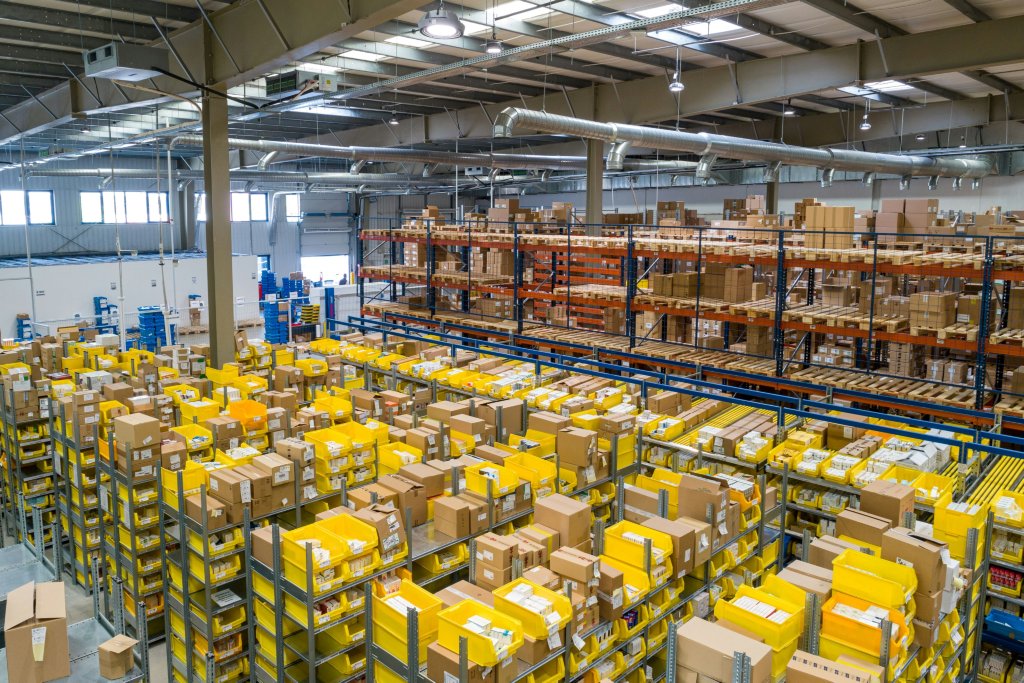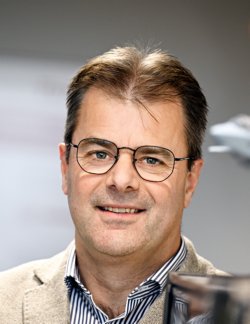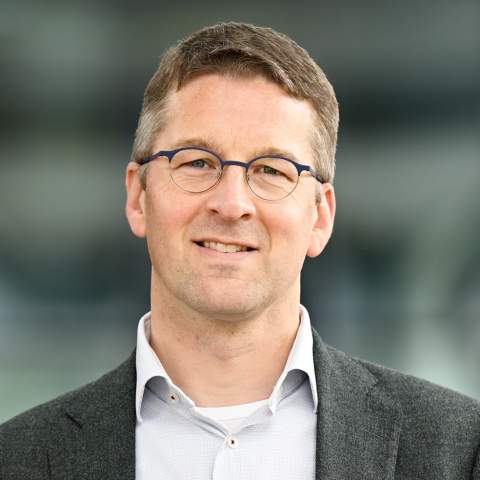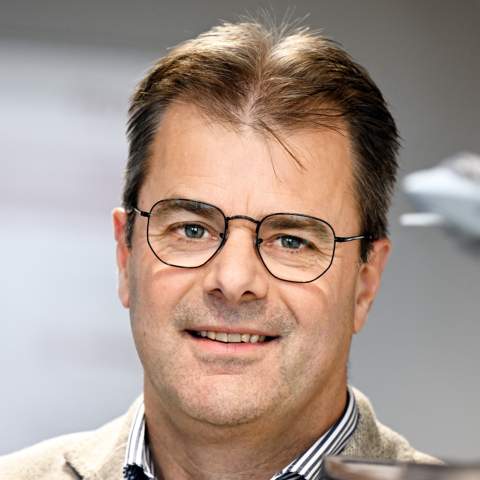Creating the leanest systems and procedures for optimizing production is at the heart of the traditional view of industry and production. But do lean systems stand their ground in the wake of disruptive events, like pandemics and geopolitical conflicts?
A Resilience Engineering perspective is relatively new to this field of research, as Geert-Jan van Houtum and Remco Dijkman, both professors at the Eindhoven University of Technology, explain. Resilience Engineering serves as a promising paradigm shift in acknowledging the inevitability of disruptive events to help the industry innovate and grow.
In 2018*, one of the buildings of Prodrive Technologies, a supplier to major corporations and manufacturers based in Son, burned down severely, affecting their storage and production. As a result, the company incurred a considerable supply backlog and couldn’t deliver parts to ASML and Philips.
“When a disruptive event like this suddenly happens, you must have an immediate understanding of exactly which flows are disrupted and the consequences thereof: what is left of parts to deliver, what machines are available to continue production, how easily can we adapt the information system to the outages of a production site?” explains Remco Dijkman, professor of Information Systems. “In the case of Prodrive, they did this very well. As a result, they got back up-and-running in ‘firefighting mode’ very quickly after the event and now they are doing better than ever.”
Resilient decision-making
The academic work of Remco and Geert-Jan is closely related. While Remco focuses on calculating the actual circumstances in information systems after a disruptive event, Geert-Jan complements this focus with his attention to decision-making when operating under disastrous conditions. They both contribute to resilient production systems, with the aim of restoring production to its regular state as soon as possible.
Geert-Jan distinguishes between two levels of decision-making: the tactical and operational level. Generally, he sees that, when it comes to spare parts and maintenance, companies may take tactical decisions two times a year, whereas the operational decision-making is executed daily. Think of, for example, stock management of spare parts or maintenance planning for a large railway network.
The Resilience Engineering perspective puts the picture of maintenance of a large railway network in a broader perspective, prompting to include more perspectives in tactical decision-making. Geert-Jan: “I realized, we should also look at passenger streams for example, what role do we give this in our systems view and how can we anticipate changes for passengers’ journeys? This change of perspective, elicited by Resilience Engineering, is what gave me extra inspiration.”
Cross-pollination – experiencing the Resilience Engineering community
Geert-Jan joined the 4TU.RE centre about five years ago and was active in the Scientific Steering Group since 2020. Geert-Jan: “It was interesting to join this community, the variety in disciplines, such as Industrial Engineering, Electrical Engineering, Mathematics, Civil Engineering stood out to me.”
It was when the floodings happened in Limburg, that the water management gained more prominence. We discussed about the value of overflow areas in rural parts of the country. We also discussed risks of floods in cities and that when a single system goes down, other systems might go down with it. For example, how the electricity grid might be affected by floods.
Geert-Jan: “It occurred to me that, in the Netherlands and especially in industry, we have not so much attention to system thinking yet and I find this a stimulating topic to pursue. There are so many relevant intersections between disruptive events and what that means for supply chains, maintenance management, and so on. For me, the notion of resilience came to live too when the Covid-19 pandemic happened and how we were able to develop a vaccine so quickly, getting people tested and vaccinated efficiently in a short period of time. This settled the continuing relevance of Resilience Engineering in my opinion.”
Why build in some slack?
Remco concurs: “A lot has happened recently, in production and maintenance, our field of research and in the world at large that made us aware of the importance of resilient engineering. Examples include geopolitical events and the blockage of the Suez Canal. In addition, climate change and its consequences have been studied for a long time, but now it is also emerging in our research domain and in domains of application, like health care, insurances, etc. Resilience has a lasting importance. Although, also from my point of view as Research Director High Tech Supply Chain, I can see that the agendas of industry and networking organizations can be tricky in keeping the attention to the Resilience Engineering perspective. This is where I would like to make a difference.”
“On a practical level, I observe that in production processes have become so lean that you can hardly accommodate shifts.” Remco continues. “One example is something that happened at the start of the Covid-19 pandemic. A large manufacturer decided to roll back production for two months because Covid-19 might cause orders to decrease, but instead, on the longer run, the number of orders increased. As a result, they spent two or three years dealing with the fall out of a decision that was taken for a situation which lasted two months. So, in retrospect, that turned out to be the wrong decision.”
Remco’s hands-on advice to the industry would be to consider to put back some slack in the systems. If you get the set-up of information systems right, these systems should help to reorganise when things go wrong. Remco compares it to doing fire drills for resilience.
“It is precisely therefore, that I would like to keep a certain awareness of the importance of resilience and keep this topic on the agenda. I am content to see that resilience is still on top of the European Commission's agenda.” says Remco.

Keep Resilience on the agenda and take the lead for further cross-pollination
In 2023, Remco Dijkman became a member of the Scientific Steering Committee (SSG) for 4TU.RE. Geert-Jan van Houtum stepped down from his role in the SSG after 5 years and is now part of the Board of 4TU.Resilience Engineering.
“As a member of the SSG, I would like to contribute to enhance supply chain resilience research and involve adjacent disciplines. I believe we can learn a lot from each other, like the example water management set. I can imagine that we organise a workshop with supply chain professionals, where civil engineers and colleagues from other disciplines can join as well. I’m interested in exploring models different from those you see in business information management. And hopefully, this works vice versa too, you can learn from each other both ways.” says Remco.
Evidence based disruption management
Remco: “We recently concluded a project under the umbrella of Dinalog, the Dutch Institute for Advanced Logistics. The project addressed Evidence Based Disruption Management. On one hand, we studied a supply chain with a detailed model on how the goods flow. On the other hand, we looked into data-driven aspects and compared this to what happened in reality. We could see all kinds of detours! We saw other suppliers in the system and things that just didn’t add up anymore.”
Remco and colleagues published an article explaining the technicalities of how to detect deviations in supply chain processes:
Chouhan, S., Wilbik, A., Dijkman, R. (2021). A Real-Time Method for Detecting Temporary Process Variants in Event Log Data. In: Polyvyanyy, A., Wynn, M.T., Van Looy, A., Reichert, M. (eds) Business Process Management. BPM 2021. Lecture Notes in Computer Science(), vol 12875. Springer, Cham.
You can find more information about this project in Dutch.
After-sales service supply with ASML
Geert-Jan has been involved with ASML, one of the world’s leading manufacturers for chip-making equipment, for a number of years now: “The aim is to prevent downtime of expensive chip-making machines, these machines have a price of up to 200 million euros and downtime costs are very high. Therefore, spare parts should be available within a few hours, globally, in the event of a breakdown. Of course, assessments for maintenance and the spare parts supply are being conducted on a continuous basis, but sometimes you get surprised by the unruliness of reality. For a factory, recovery from a downtime of one day of an ASML machine can take up to two weeks, i.e., the involved congestion in the whole factory may last two weeks. It’s easy to see how costly this is and how much we gain from smart spare part management.” Read more in an article by Geert-Jan and colleagues:
Lamghari-Idrissi, D., Van Hugten, R., Van Houtum, G.J., and Basten, R.J.I., "Increasing chip availability through a new after-sales service supply concept at ASML", INFORMS Journal on Applied Analytics, vol. 52, pp. 460-470, 2022. Download: Increasing Chip Availability Through a New After-Sales Service Supply Concept at ASML — Eindhoven University of Technology research portal (tue.nl)
*Link to the news article about ProDrive, in Dutch.
Article written by Nienke D. Nijenhuis.







